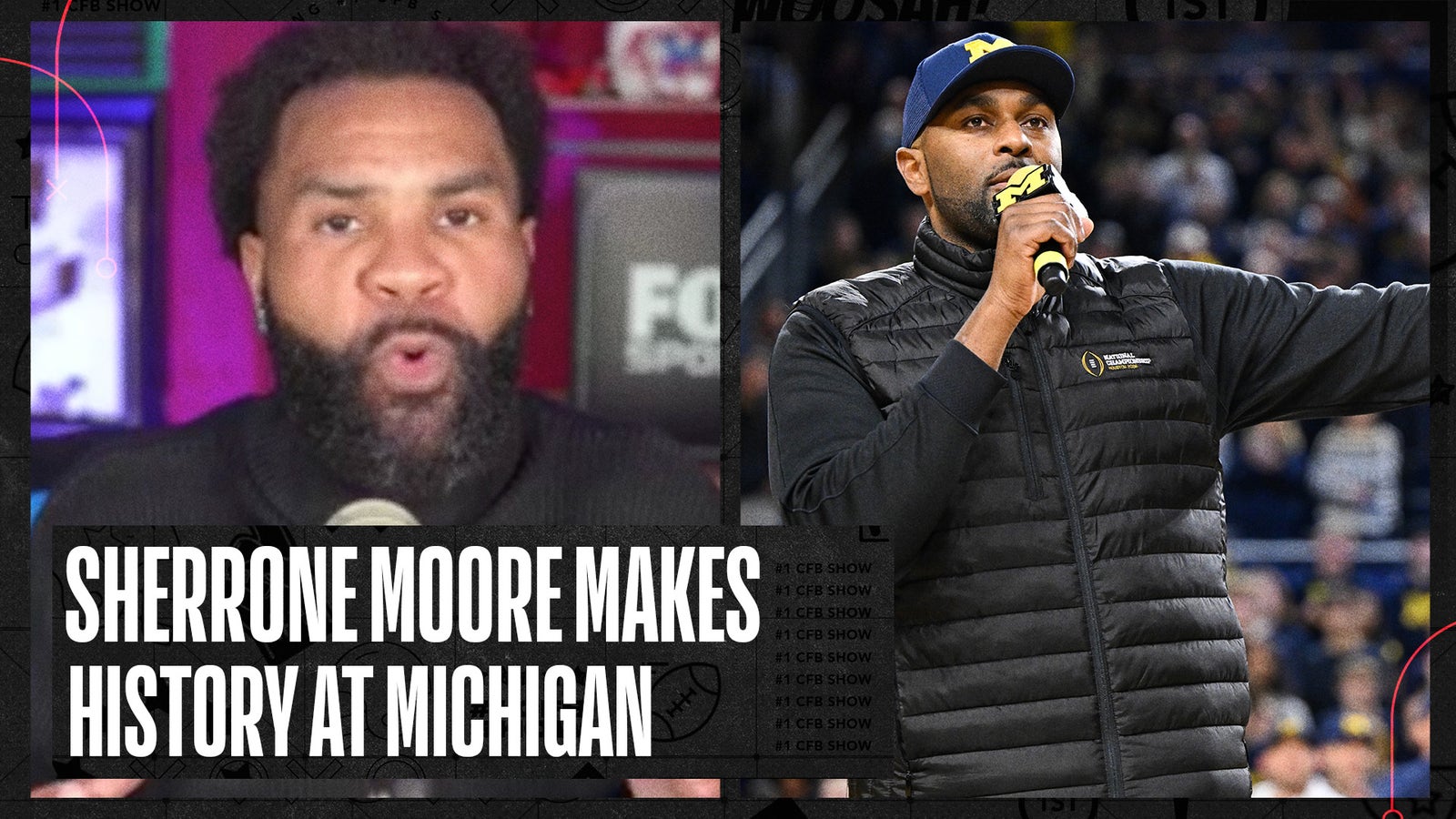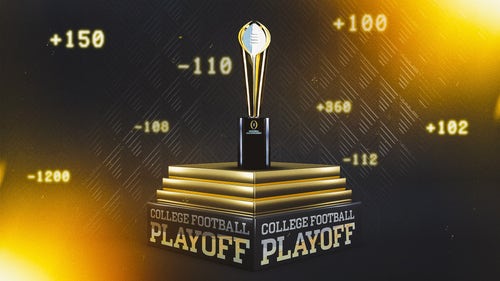
Sherrone Moore's rise — aided by Jim Harbaugh's support — can be a blueprint for Black coaches
When Sherrone Moore was named the head football coach at the University of Michigan last Friday, he not only achieved a dream he'd sought since graduating from Oklahoma back in 2008, but he became a walking, talking pioneer in Black history, joining one of the most exclusive and decorated groups in sports.
In the 155-year history of college football, the Wolverines have never had a Black man lead their program. One reason is only eight coaches have held the job over the past 70 years. It's not the kind of gig that needs to be filled often, and that's another reason Moore's ascension is significant.
If not for Jim Harbaugh, there's little chance Moore would've been in position to not just earn this job, but be the clear and presumptive choice for it once Harbaugh made his decision to return to the NFL as head coach of the Los Angeles Chargers. And if not for Dan Enos, Moore might've never grabbed Harbaugh's attention at all.
In 2017, Enos, who was born in Dearborn, Michigan and played at Michigan State from 1987-90, agreed to become Harbaugh's wide receiver coach at Michigan. He stayed on staff for all of six weeks, but that was long enough for him to recommend Moore for a spot on Harbaugh's staff.
Enos left to work for Nick Saban at Alabama, and Moore became the Wolverines' tight end coach in 2018. Over the next two years, Moore attached himself to Harbaugh and vice versa.
As the program began to take on Harbaugh's desired brand of football – a powerful run game and an attitude of toughness and grit that started in the trenches – Moore, a former offensive lineman for Bob Stoops at Oklahoma, took on more of an elevated role.
Following 2021, when the Wolverines won their first Big Ten title and made their first College Football Playoff appearance in the Harbaugh era, former offensive coordinator and Broyles Award winner Josh Gattis accepted the same position at Miami.
Moore was an obvious choice for the job as co-offensive coordinator after taking over the offensive line. In both 2021 and 2022, those offensive lines won the Joe Moore Award.
With Moore already a hot name in the coaching carousel heading into 2023, Harbaugh left no doubt when it came to how he felt about his coordinator as a head coach, naming him acting head coach for four of the six games he missed in the 2023 season, even saying he loved Moore "like a brother."
The reason this story of brotherly love is so impactful is that it's representative of what it takes for efforts in diversity and inclusion to succeed. Some believe, wrongly, that Moore being Black doesn't matter and shouldn't.
Indeed, Moore believes that.
In response to a question about Alabama quarterback Jalen Milroe's ability to play the position, Moore said he doesn't think being Black has much to do with his life.
"Really, I don't see color," Moore said. "My wife is Caucasian. My kids are mixed. I deal with Black and white. I've lived in Kansas, where you can be in the house with the door open at 12, and in New Jersey, where you have to be in the house by 6 o'clock. I've seen all the cards of the spectrum."
In a country where just 13% of Americans are Black, just 7% identify as Black and male, but nearly 56% of college football players are Black and male, we see color.
When the NFL must institute the Rooney Rule to insure at least one Black candidate is interviewed for every head coaching vacancy in a sport where more than 60% of players are Black, we see color.
When Michigan, the winningest program in the history of sport, hires its first Black head coach in January 2024, we see color.
And we still have more work to do. There are plenty of programs across the Division I college football landscape that have yet to hire a Black head coach, including some of the biggest, most successful brands in the sport. But I have faith that they will. And when they do, perhaps it will be another individual like Harbaugh who laid the groundwork for a Black man like Moore at Michigan or David Shaw at Stanford to succeed him in such a manner that he is the best choice for the job.
RJ Young is a national college football writer and analyst for FOX Sports and the host of the podcast "The Number One College Football Show." Follow him on Twitter at @RJ_Young and subscribe to "The RJ Young Show" on YouTube.











